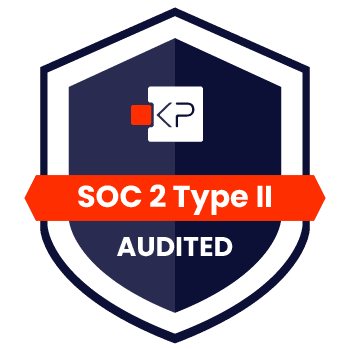Take a moment and drift down memory lane to the time in your life when school (elementary, middle, high or college) – and the grade you received in each class / course – was the single measurement of your success.
A heightened level of success was reflected with an “A” or “B” grade and your parents rewarded / celebrated this success with you – life was good! Next, reflect upon a “C” grade and the level of excitement / rewards received – happiness didn’t exist. This grade indicated only AVERAGE performance in meeting scholastic requirements.
Fast forward, now, to today and the tremendous responsibilities you possess as a Fleet Executive or Manager to ensure safety and safe operations of your commercial motor vehicle fleet.
Drawing a direct parallel, the following are the facts:
- Just “meeting” the requirements of the Federal Motor Carrier Safety Administration (FMCSA) and U.S. Department of Transportation (DOT) regulations results in only a “C” grade in fleet compliance attainment, as these statutes reflect only the MINIMUM regulatory FMCSA / DOT standards to be met.
- In only “meeting” these minimum standards, your entire fleet operation and organization are at extreme risk.
The proactive implementation of additional industry best practices – beyond the minimum FMCSA / DOT mandated requirements – is critical in managing fleet liability and risk mitigation to protect your organization.
While future articles will delve into multiple best practices instituted by the leading fleets in North America to progress beyond “just meeting” the regulations, a perfect single illustration that we’ll utilize in today’s article is the Pre-Employment Screening Program (PSP) process / database created by FMCSA in 2010.
This PSP program helps carriers make more informed hiring decisions by providing secure, electronic access to a commercial driver’s five (5) year crash and three (3) year roadside inspection history from the FMCSA Motor Carrier Management Information System (MCMIS). These PSP records are available instantly for companies conducting pre-employment screening for the carrier industry and are available at a cost less than $13.00 per driver record inquiry.
According to a study released by FMCSA, PSP positively impacts the safety of America’s roadways. The study indicates that motor carriers using PSP have, on average, decreased crash rates by 8 percent and driver out-of-service (OOS) rates by 17 percent. It is estimated that in the 12 months studied the motor carrier group using PSP prevented 863 crashes and more than 3,500 driver OOS incidents.
While this PSP background screening tool is not mandated by the FMCSA / DOT to meet the MINIMUM requirements in driver qualification compliance, the motor carrier benefits of 5 years of crash data and 3 years of roadside inspection history knowledge, in advance of a new driver candidate hiring decision, is a tremendous benefit in carrier predictive, behavioral risk assessment. This results in immediate – and future – reduced insurance premium costs and proactive fleet liability exposure management.
In a recent risk management symposium conducted by several leading Plaintiff Legal Counsel, this PSP screening tool availability was used as a specific illustration in the flawed philosophy of motor carrier organizations making the decision to “only meet the minimum FMCSA / DOT requirements.”
These Plaintiff Counsel enthusiastically welcomed the opportunity, in litigation, to inquire, of the carrier representative, if this PSP screening tool was utilized by the carrier in their new driver safety evaluation and assessment process. Upon the carrier representative’s historical reply “that PSP is not an FMCSA / DOT requirement”, the Plaintiff Counsel response is as follows:
“So, you’re indicating that for a mere $10 – $13, it isn’t important enough to your organization to attain 5 years of readily available prior safety / behavioral patterns and crash history, to meet your company’s obligation and responsibility to place safe drivers on the road and prevent accidents? Weren’t my clients’ injuries, suffering, and death – and their family’s loss – worth this minuscule investment to protect their, and others, lives?”
This Plaintiff Counsel questioning strategy in placing motor carrier accountability and responsibility to go beyond the minimum FMCSA / DOT safety compliance standards (whether in background investigation, hours of service, driver qualification, vehicle maintenance, drug and health screening, etc.) succeeds over 92% of the time in a favorable judgement for the Plaintiff – in spite of the fact that the motor carrier actually met the minimum regulatory requirements!
In litigation, a “C” Grade for the motor carrier does not meet the elevated responsibilities and expectations to ensure the safety of the general public. In this arena, AVERAGE compliance attainment for the fleet clearly fails this standard.
Explore the initiatives and actions required to move beyond a “C” Grade in your fleet safety, compliance, and risk management processes. Implement best-in-class practices for your fleet and, if necessary, seek objective external expertise and assistance from a trusted advisor / industry leader in compliance and risk management solutions delivery to accomplish your objectives.
With the tremendous liability and risk exposure in fleet operations, the highest of stakes exists in attaining an “A” Grade: the future success, survival, and profitability of your organization.
Stay tuned for more articles on transportation and regulatory compliance best practices – coming each month.


